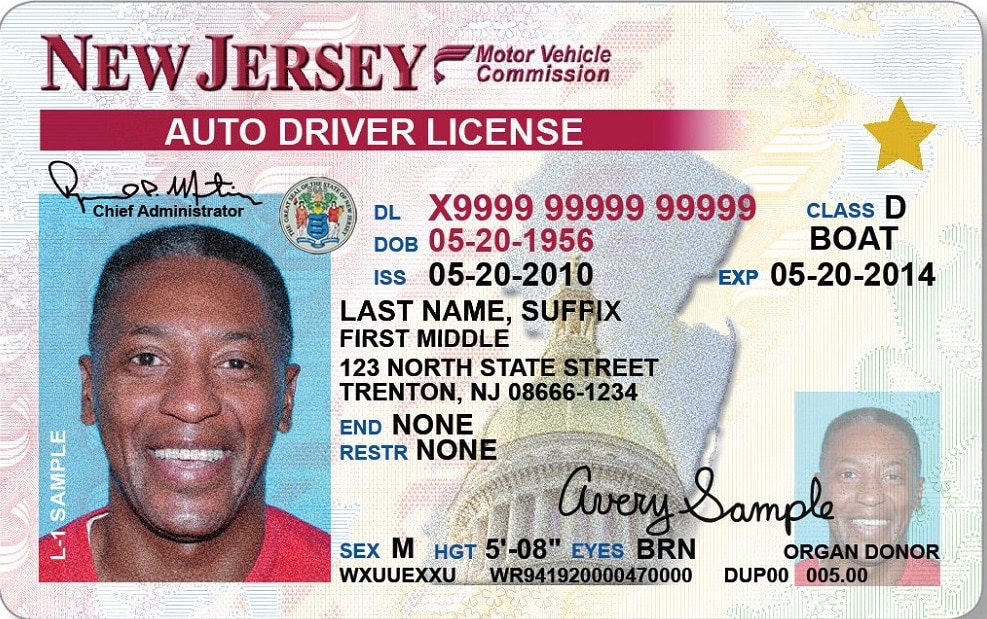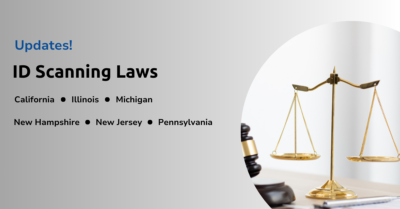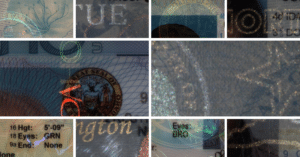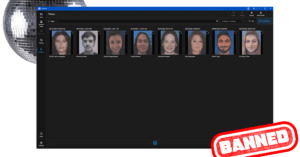Overview of New Jersey ID scanning laws
New Jersey has 6 laws which we consider relevant to ID verification, in addition to other laws which may related to age verification, identity verification, KYC, privacy, and biometrics.
Can you scan IDs in New Jersey?
New Jersey law restricts a retailer’s ability to scan IDs. ID scanning is only permitted for the following purposes:
- To verify the authenticity of an ID or the identity of a person if the person (a) pays for goods/services with a method other than cash, (b) returns an item, or (c) requests a refund/exchange.
- To verify the person’s age in providing age-restricted goods/services.
- To prevent fraud/criminal activity if the person returns an item or requests a refund/exchange and the retailer uses a fraud prevention service company/system
- To prevent fraud/criminal activity related to opening/managing a credit account
- To establish/maintain a contractual relationship
- To record/retain/transmit information required by laws
- To transmit information to credit reporting agencies/financial institutions/debt collection agencies
- For HIPAA purposes
Can you save data from a scanned ID in New Jersey?
Data saved from an ID scan is limited to: name, address, date of birth, issuing state, and ID number. This information must be securely stored.
Choosing an ID scanning provider that provides custom PII retention settings can ensure your business maintains compliance with Nebraska’s ID scanning laws.
Does New Jersey offer affirmative defense for ID scanning?
No. New Jersey has no affirmative defense laws related to ID scanning.
What types of IDs does New Jersey issue?
New Jersey issues drivers licenses and state IDs, including REAL ID.
Individual New Jersey ID verification laws
Age verification for alcohol sales
New Jersey requires that businesses verify age and allows ID scanning or verification for alcohol sales.
Age verification for tobacco sales
New Jersey requires that businesses verify age and allows ID scanning or verification for tobacco product sales.
Age verification for cannabis dispensaries
New Jersey requires that cannabis retailers verify patrons are at least 21 years old before allowing entrance and again before selling cannabis items.
ID scanning for scrap metal
Scrap metal businesses must keep records including a copy of the seller’s ID. Proposed Bill S249 would expand the definition to include catalytic converters.
Age verification for pornography
This bill would require websites that contain a “substantial portion” of material harmful to minors to verify age and ensure users are at least 21 years old.
Age verification for fantasy sports
This law would require fantasy sports operators verify age to ensure participants are at least 18 years old.
Data privacy laws in New Jersey
The New Jersey Data Privacy Act (NJDPA) grants consumers the following rights:
- Confirm whether a controller processes personal data and access that data
- Correct inaccuracies in their personal data
- Delete personal data
- Obtain a copy of personal data in a portable, readily usable and transferable format
- Opt out of processing of personal data for targeted advertising or profiling
Medical facilities, financial institutions, secondary market institutions, certain insurance institutions, and the state’s Motor Vehicle Commission are exempt.



